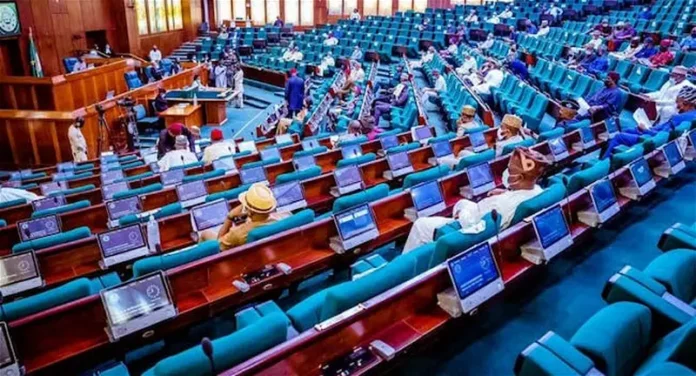|
Listen to article
|
Government officials and lawmakers have come forward to address misconceptions about the Finance (Amendment) Bill, 2024. They stress that the bill is not designed to burden the general public with additional levies.
Rather, it seeks to implement a targeted measure on banking institutions, particularly concerning their profits from foreign exchange transactions. This approach is part of a broader strategy to enhance fiscal policies in the financial sector.The proposed amendment to the Finance Act of 2023 encompasses several significant changes.
Central to these is the introduction of a windfall tax provision, designed to address extraordinary profits in specific economic conditions. The bill also enhances the government’s capacity to thoroughly assess and review profit declarations from businesses across sectors.
Furthermore, it provides the Federal Inland Revenue Service with the flexibility to establish deferred payment agreements for financial institutions, recognizing the unique challenges and cash flow patterns in this sector.
Yesterday, in a coordinated announcement, the National Assembly and Federal Government underscored the importance of this bill in Nigeria’s economic restructuring efforts.
They detailed that the proposed legislation seeks to impose a 50% levy on banks’ profits derived from foreign exchange transactions. The temporal scope of this measure would encompass the entire 2023 financial year and continue until December 2024.
The Finance Act (Amendment) Bill, 2024 was the focus of a critical interactive session that brought together influential figures from across Nigeria’s political spectrum. Senator Sani Musa, representing Niger East under the APC and chairing the Senate Committee on Finance, shared insights alongside Honourable James Faleke, his counterpart from the House of Representatives.
The executive branch was well-represented by Wale Edun, who holds the dual portfolio of Finance Minister and Coordinating Minister of the Economy, and Zack Adedeji, the FIRS Chairman. This gathering of key stakeholders provided a comprehensive examination of the bill’s potential impact on Nigeria’s fiscal and economic landscape.
The legislative branch has escalated its scrutiny of the proposed bill by calling for direct input from key financial sector leaders. In a coordinated move, the Senate and House of Representatives have formally summoned CBN Governor Yemi Cardoso, his top officials, and representatives from the Bankers Committee.
This influential group is scheduled to present their perspectives and recommendations on the bill in a joint legislative session tomorrow at 11 am. The summons underscores the lawmakers’ commitment to a thorough and inclusive review process.
Both the National Assembly and the Minister of Finance were not happy for not attending the session.
In his remarks, the Minister of Finance, Edun explained that the monies to be taken from the banks should not be considered as tax but levies, dismissing the view that the levies would be passed on implicitly to customers.
Edun said, “This is an important opportunity given to all stakeholders. All over the world it is common that the society takes a share of such profit.
“This is an important contribution to the finances of the government at this time, however it is important to say that has been robust without raising taxes, there is a minimization of taxes, government revenue has increased substantially. Broadly speaking it a levy on 2024 realized gains on foreign exchange within the banking sector. It is a pity that the banking system is not here and even the central bank is not here to participate in this discussion.
On his part, the FIRS boss, Adedeji however disclosed that surcharging the banks for the sole aim of redistributing wealth has become most imperative to balance the shortage recorded by other sectors owing to the policies.
Read also: Uzodinma Vows To Partner With Lawmakers For Imo’s Progress
According to him, the Manufacturing sector has made 1.7 trillion-naira loss as a result of the forex and based on that the agency cannot tax them, adding, “it’s not that we are going after the profit but recovering the losses incurred by the activities as a result of their own ineptitude bringing a policy to correct the policy decision. Everybody realized that it is not their money, money earned in the normal course of your business.”
Earlier in his opening remarks, Chairman of the joint Committee, Senator Musa who noted that the amendment of the Finance Act, 2024 is to impose and charge windfall tax on Banks and provide for the administration of the Tax, said that the intent behind the levy is to ensure that banks contribute their fair share to national revenue, especially in light of the substantial gains made from foreign exchange.
Senator Musa said, “The proposed Finance (Amendment) Bill, 2024, is a pivotal step in our nation’s economic transformation journey. This bill seeks to impose a 50% levy on the realized profits from all foreign exchange transactions of banks within the 2023 financial year to December 2024. The intent behind this levy is to ensure that banks contribute their fair share to national revenue, especially in light of the substantial gains made from foreign exchange activities. The levy does not affect Nigerians, it is not on Nigerians, but the huge profits on forex that the banks made.
























